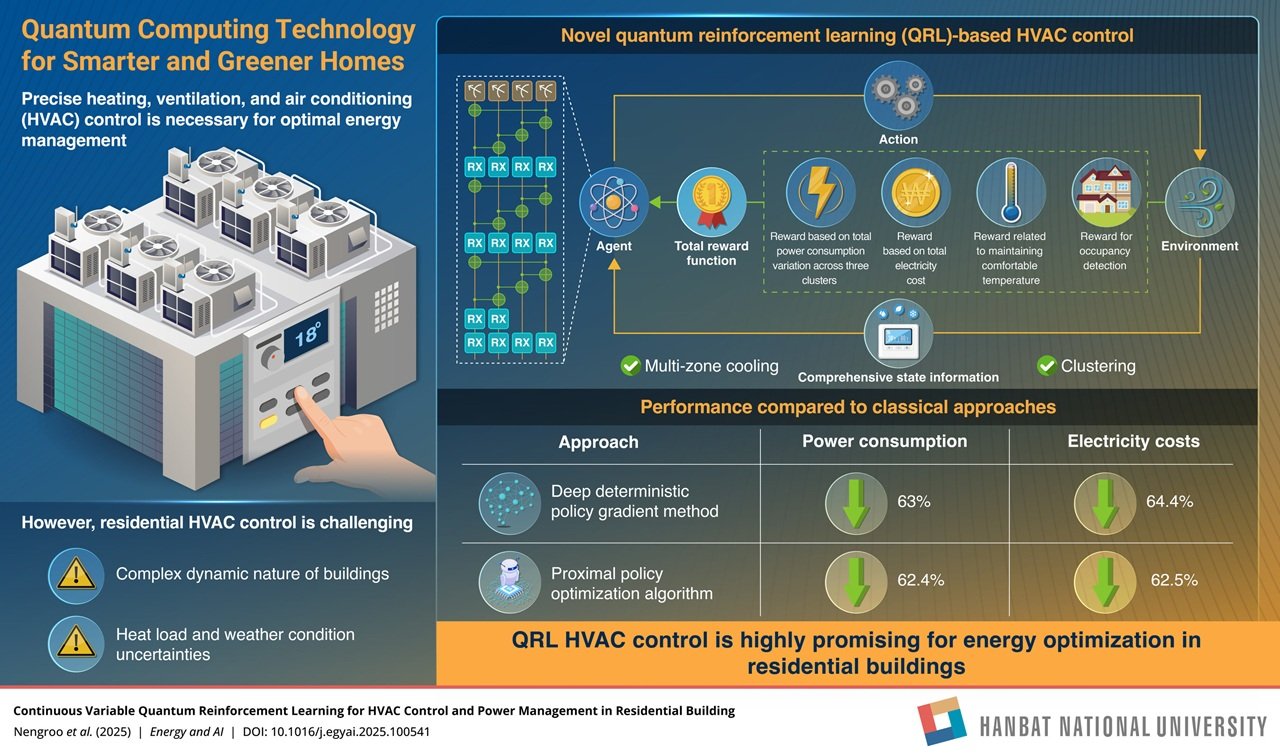A research team from South Korea, led by Dr. Sangkeum Lee of Hanbat National University, has presented a quantum-enhanced reinforcement learning (QRL) method for residential HVAC and home power management, claiming significant energy savings and improved indoor comfort. The study was published in Energy and AI on September 1, 2025, following its online release in June.
The system combines quantum computing principles with real-time occupancy detection and operational data such as power usage, air conditioner control, and external temperatures. The researchers highlight that QRL allows more efficient handling of complex multi-zone HVAC systems compared to conventional reinforcement learning methods.
Simulations based on data from 26 residential homes over a three-month period showed that QRL-based HVAC control achieved up to 63% reductions in power consumption and 64.4% lower electricity costs, while maintaining thermal comfort. The method outperformed other machine learning techniques, including deep deterministic policy gradient and proximal policy optimization.
The framework supports features such as multi-zone cooling and data clustering for real-time optimization of comfort, cost, and carbon signals. It is compatible with standard sensors and HVAC equipment, and is designed to operate reliably under uncertain conditions such as noisy weather or occupancy forecasts.
According to Dr. Lee, the technology could be used in smart thermostats and autonomous energy management systems, and extended to microgrids or virtual power plants (VPPs) for broader grid integration. "It can be utilized in smart thermostats and autonomous home energy management systems that co-optimize comfort, bills, and emissions without manual tuning," he said.
